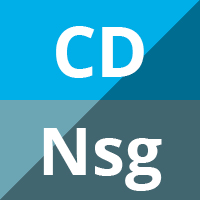Abstract
Background
Anticonvulsant therapy is sometimes used prophylactically in patients with chronic subdural haematoma, although the benefit is unclear.
Objectives
To assess the effects of prophylactic anticonvulsants in patients with chronic subdural haematoma, in both the pre- and post-operative periods.
Search methods
We searched the Cochrane Injuries Group’s Specialised Register, CENTRAL (The Cochrane Library), MEDLINE (OvidSP), EMBASE (OvidSP), PubMed, LILACS, and the databases clinicaltrials.gov, the WHO International Clinical Trials Registry Platform, and Current Controlled Trials. The search was through 27th March 2013.
Selection criteria
Randomised controlled trials comparing any anticonvulsant versus placebo or no intervention.
Data collection and analysis
Three authors screened the search results to identify relevant studies. No studies met the inclusion criteria for the review.
Main results
No randomised controlled trials were identified.
Authors’ conclusions
No formal recommendations can be made about the use of prophylactic anticonvulsants in patients with chronic subdural haematoma based on the literature currently available. There are no randomised controlled trials on this topic, and non-controlled studies have conflicting results. There is an urgent need for well-designed randomised controlled trials.
Plain language summary
Anti-epileptic drugs for preventing seizures in patients with long-term bleeding around the brain (subdural haematoma)
Chronic subdural haematoma (CSH) is a serious condition in which blood collects under the thickest membrane that surrounds the brain, known as the dura mater. CSH is usually caused by minor head injuries in which a vein has torn, and this happens in particular in older patients and patients with other brain problems. A CSH may cause seizures which can be dangerous. Some doctors give patients anti-epileptic drugs such as phenytoin or phenobarbital to try to prevent seizures. However, most patients with CSH will not have seizures and anti-epileptic drugs can have serious side effects.
The review authors wanted to find out whether patients with a CSH who received anti-epileptic drugs had fewer seizures than those who did not. They searched medical journals to find reports of randomised controlled trials in which one group of patients received a treatment (anti-epileptic drugs, which could be given before or after surgery for the CSH) and were compared with a similar group of patients who received a non-active or different treatment. The authors searched many medical journals and found no reports of randomised controlled trials on this topic. They did find other studies, but either there was no control group or the study involved looking at past patients’ medical records. These un-controlled, or retrospective, studies had conflicting results regarding the benefit of anti-epileptic drugs.
The review authors conclude that better research needs to be done on this topic and, for now, there is no clear evidence to support the regular use of anti-epileptic drugs for patients with long-term subdural haematoma.


